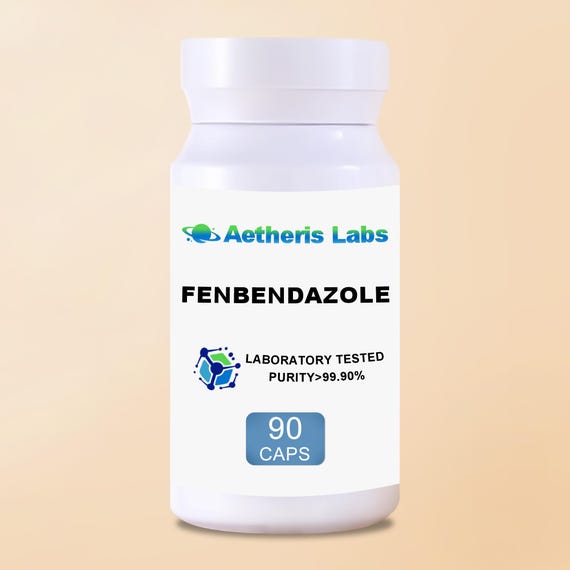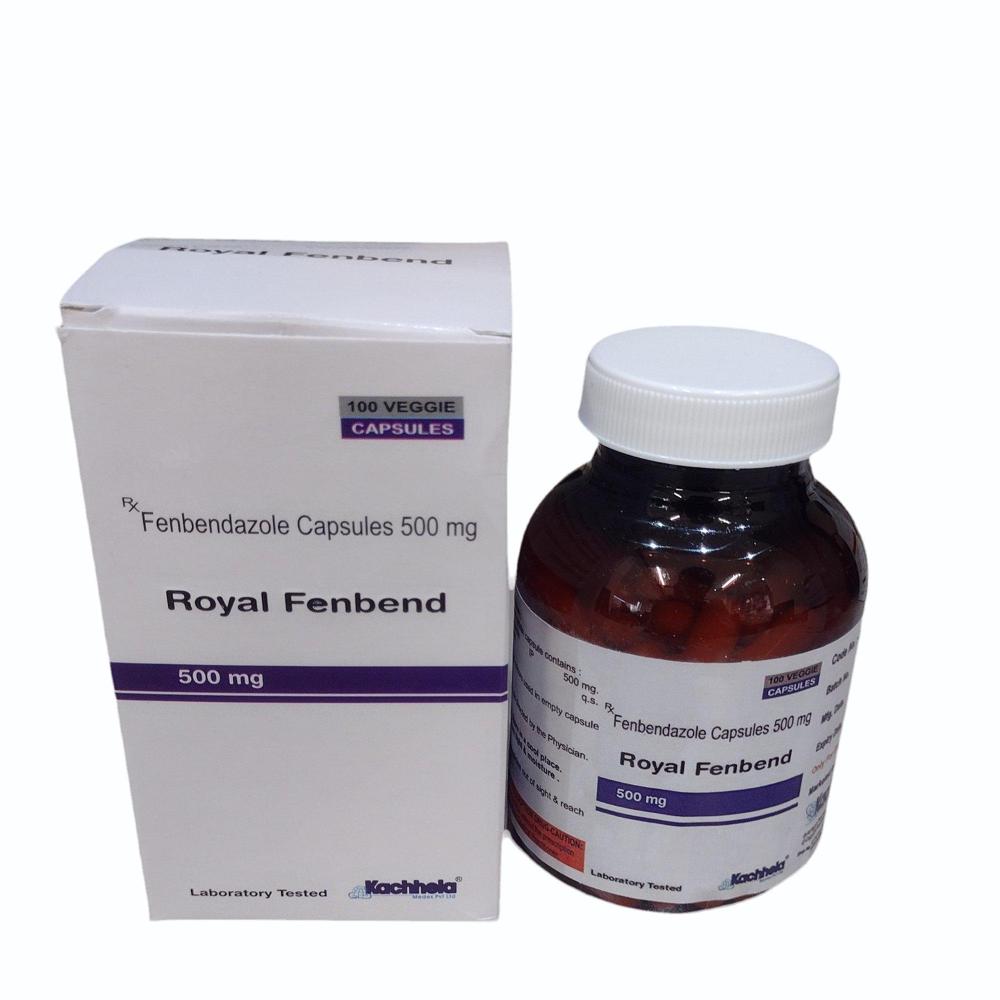Checking out the Mechanisms Behind Fenbendazole and Its Influence On Animal Wellness
Fenbendazole is a commonly made use of anthelmintic recognized for its efficiency against numerous bloodsuckers. Its key system involves the inhibition of microtubule development, which interferes with important processes in these virus. Beyond its antiparasitic buildings, fenbendazole additionally appears to enhance immune reactions and possesses anti-inflammatory advantages. Comprehending these complex results could reveal new applications for pet health and wellness. Questions continue to be regarding its full possibility and safety profile.
The Pharmacokinetics of Fenbendazole
The pharmacokinetics of fenbendazole, a commonly made use of anthelmintic in veterinary medicine, includes the research of its absorption, circulation, metabolic rate, and discharging within animal systems. After management, fenbendazole is quickly taken in from the gastrointestinal tract, with peak plasma concentrations taking place within hours. Its distribution is influenced by factors such as cells binding and lipid solubility, allowing it to permeate numerous tissues properly. The drug goes through substantial metabolism mainly in the liver, where it is transformed right into active and non-active metabolites. These metabolites contribute in the medicine's total effectiveness and safety and security profile. Excretion occurs mostly through feces, with a smaller proportion eliminated through pee. The half-life of fenbendazole varies among types, which influences application regimens. Recognizing these pharmacokinetic properties is crucial for enhancing its healing usage and making certain reliable bloodsucker control in veterinary techniques.
Systems of Action Against Parasites
Fenbendazole exerts its antiparasitic impacts mostly via the inhibition of microtubule development in parasites. This interruption impacts their architectural stability and cellular features, bring about impaired power metabolism. Because of this, the medication properly endangers the survival and recreation of various parasitic microorganisms.
Inhibition of Microtubule Formation
Inhibition of microtubule formation stands for an essential device whereby particular anthelmintic agents, consisting of fenbendazole, apply their impacts on bloodsuckers. Fenbendazole binds to tubulin, a healthy protein that forms microtubules, interfering with the polymerization procedure needed for microtubule assembly. This disturbance impairs essential mobile functions, consisting of mitosis, intracellular transportation, and architectural integrity. As microtubules play a crucial duty in keeping the form and function of parasitic cells, their inhibition brings about cell cycle arrest and ultimate fatality of the parasite. This system is especially efficient versus nematodes, as their reliance on microtubules for wheelchair and nutrient absorption makes them at risk to fenbendazole. The restraint of microtubule development is a crucial aspect of fenbendazole's healing efficiency in vet medication.
Disruption of Power Metabolism
Disrupting basal metabolism is an additional important device whereby fenbendazole targets parasitic microorganisms. This anthelmintic alters the power manufacturing pathways within parasites, mostly affecting their ability to generate adenosine triphosphate (ATP) By preventing glucose uptake and interfering with mitochondrial function, fenbendazole restrictions the energy resources essential for the survival and reproduction of these microorganisms. Because of this, parasites end up being progressively susceptible to ecological stress and anxieties and immune reactions. In addition, the disturbance in power metabolism not just influences the parasites directly but also decreases their capacity to absorb nutrients, even more hindering their growth. In general, the interruption of basal metabolism stands for a fundamental aspect of fenbendazole's efficacy versus various parasitic infections, adding greatly to boosted pet health and wellness outcomes
Prospective Adverse Effects and Safety Account
The possible negative effects and safety profile of fenbendazole warrant mindful factor to consider, especially in veterinary applications. While normally considered safe, some pets might experience negative reactions, including gastrointestinal disturbances such as throwing up and diarrhea. In addition, neurological signs and symptoms, although uncommon, have been reported in delicate people, highlighting the requirement for monitoring throughout therapy.

Fenbendazole's safety and security in different types, consisting of canines and cats, has been recorded, but dosage and duration of therapy have to be carefully managed to decrease threats. Expecting or lactating animals might also need unique focus, as the results on developing fetuses or nursing offspring are not totally recognized.
Routine vet assessments can aid alleviate possible side effects and assure the medicine is carried out properly. While fenbendazole is an effective anthelmintic representative, caution regarding its side effects is vital for maintaining pet health.
Fenbendazole's Impact on Immune Feature
Fenbendazole has been kept in mind for its prospective to regulate immune system reactions in animals. Its anti-inflammatory buildings might contribute to improved immune feature, supplying a twin advantage in managing health (fenbendazole). Comprehending these effects is crucial for evaluating fenbendazole's function in veterinary medication
Immune System Inflection

Anti-inflammatory Features
Anti-inflammatory effects stand for a significant facet of fenbendazole's influence on immune function. Study shows that fenbendazole may reduce the manufacturing of pro-inflammatory cytokines, which are pivotal in moderating inflammatory responses. By modulating these cytokines, fenbendazole can possibly reduce inflammation-related conditions in animals. This anti-inflammatory action not just help in why not try here taking care of signs and symptoms connected with numerous conditions yet likewise improves overall body immune system efficiency. Furthermore, its capability to promote a balanced immune action assists stop too much inflammatory damages, which can bring about chronic wellness problems. As a result, fenbendazole's role in swelling administration highlights its relevance in veterinary medication, providing a twin advantage of antiparasitic action and immune system support for pet health.
Applications Beyond Standard Parasitic Infections
While Homepage mostly recognized for its efficiency against numerous parasitical infections, fenbendazole has actually gathered attention for prospective applications yet conventional extent. Recent research studies suggest that fenbendazole might have beneficial impacts on mobile health and immune response, making it an intriguing prospect for taking care of other health and wellness problems in animals. For example, its reported anti-inflammatory residential properties may provide alleviation for pets dealing with persistent inflammatory diseases. In addition, some research suggests that fenbendazole might play a duty in sustaining the overall wellness of animals by boosting nutrient absorption and intestinal health. Its potential as an adjunct therapy in cancer treatment has sparked interest, as initial searchings for suggest it may prevent tumor cell growth in certain contexts. These diverse applications highlight fenbendazole's flexibility, urging more expedition right into its diverse benefits for animal health beyond its conventional usage as a deworming representative.
Future Research Directions and Effects for Pet Health And Wellness
The exploration of fenbendazole's potential applications has opened up brand-new opportunities for research targeted at enhancing pet wellness. Future research studies might concentrate on its performance versus a broader variety of pathogens, consisting of germs and viruses, therefore expanding its function in vet medication. The implications of fenbendazole's devices, such as its effect on immune modulation, warrant better examination to understand how it can bolster total health and wellness in various varieties.
In click addition, research study might discover optimal dosages and formulas to maximize efficiency while reducing potential adverse effects. Examining fenbendazole's synergistic effects with various other medicines can result in extra efficient therapy methods. Longitudinal research studies examining long-lasting outcomes in pets treated with fenbendazole could offer important understandings right into its safety and security and effectiveness. On the whole, the ongoing expedition of fenbendazole uses promising possibility to enhance pet health, requiring a joint approach amongst scientists, veterinarians, and pharmaceutical developers to promote developments in this field.
Frequently Asked Concerns
Can Fenbendazole Be Made Use Of in Animals for Parasite Avoidance?
The question of whether fenbendazole can be used in livestock for parasite prevention is appropriate, as manufacturers look for reliable treatments (fenbendazole 444). Research indicates it may offer advantages, however correct guidelines and veterinary recommendations are crucial for safe use
What Is the Recommended Dosage of Fenbendazole for Different Animals?

Are There Any Kind Of Recognized Drug Interactions With Fenbendazole?
Current knowledge shows that fenbendazole might engage with specific drugs, potentially influencing their effectiveness or metabolic rate. Vet experts suggest speaking with a vet to examine private animal instances and establish any type of feasible communications before administration.
Just How Does Fenbendazole Contrast to Other Antiparasitic Drugs?
Fenbendazole is commonly compared to other antiparasitic drugs based on efficiency, spectrum of task, and safety accounts. It is favored for its effectiveness versus a large range of parasites while normally displaying marginal side impacts in pets.
Is Fenbendazole Effective Against Viral or Microbial Infections in Animals?
The effectiveness of fenbendazole against viral or microbial infections in pets stays unproven. Research study mostly concentrates on its antiparasitic properties, with minimal evidence supporting any function in treating non-parasitic infections in veterinary medication.